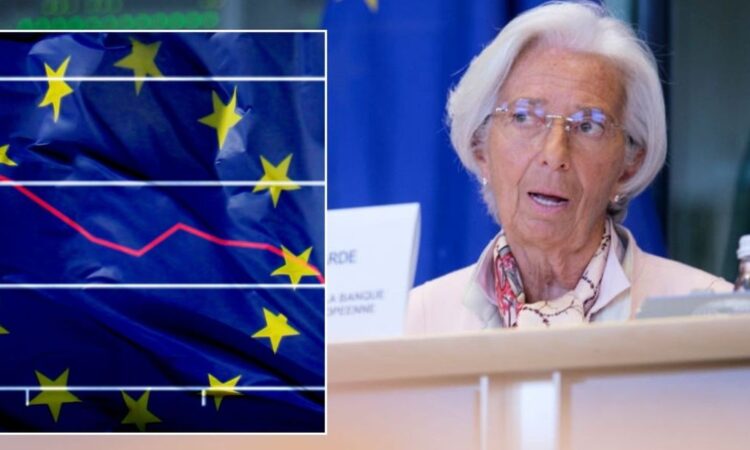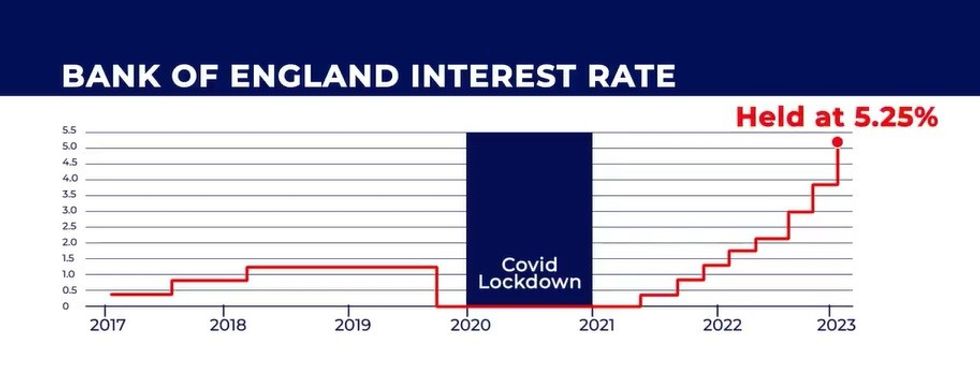Eurozone economy declared ‘weak’ as European Central Bank votes to keep interest rates at all-time high

Europe’s economy remains “weak” as interest rates in the Eurozone set to remain high for at least another month, according to the president of the Eurozone’s central bank.
The European Central Bank (ECB) has voted to keep interest rates at an all-time high level despite inflation easing in the economic and political bloc.
Earlier today, the ECB’s governing council announced the deposit rate would remain at four per cent in a blow to homeowners and debt borrowers across the continent.
Despite this, the central bank signalled that potential cuts to the base rate could be introduced as soon as June.
ECB president Christine Lagarde issued a warning that the Eurozone economy remained “weak” in the first quarter of 2024.
She cited the fact that manufacturers are facing low demand, while production continues to be subdued among firms which require a large amount of energy.
Do you have a money story you’d like to share? Get in touch by emailing [email protected].

The central bank’s president described the Eurozone’s economy as “weak” for the first quarter of the year
GETTY
However, Ms Lagarde claimed rising real incomes, which is when pay increases quicker than prices, will help with the economy’s recovery.
Furthermore, the central bank’s head noted that Eurozone unemployment is at the lowest since the euro was created.
However, Ms Lagarde noted that businesses have been cutting back on vacancies which could have an impact.
The ECB suggested it “would be appropriate” to slash rates if underlying price pressures, updated forecasts and prior interest rate rises boosted confidence that inflation was easing.
For the 12 months to March 2024, the consumer price index (CPI) rate of inflation in the Eurozone eased to 2.4 per cent.
This is a far cry from the peak of 10.6 per cent in 2022 and is close to the central bank’s desired two per cent target.
Interest rates have been raised by the ECB, the Bank of England and the Federal Reserve in a bid to bring inflation own following the Covid-19 pandemic.
Despite inflation easing on both sides of the Atlantic, central banks have stopped short of cutting interest rates as of late.
However, today’s announcement from the European Central Bank indicates that financial institutions are preparing to change trajectory.
In a statement, the ECB stated: “If the Governing Council’s updated assessment of the inflation outlook, the dynamics of underlying inflation and the strength of monetary policy transmission were to further increase its confidence that inflation is converging to the target in a sustained manner, it would be appropriate to reduce the current level of monetary policy restriction.”
LATEST DEVELOPMENTS:

The Bank of England has also voted to raise and hold interest rates to an even higher level
GB NEWS
Prior to today’s announcement, ING economist Carsten Brzeski explained why interest rate reductions are on their way.
He said: “Even if the policy announcement does not explicitly mention June as the moment for a first rate cut, we think that today’s meeting should mark the final stop before the cut.
“In fact, the ECB has gone through a very gradual transition of its communication since December, turning from hawkish to dovish.
“The faster-than-expected drop in headline inflation, as well as anaemic growth, have opened the door for some rate cuts. Not a full reversal of the rate hikes since July 2022, but rather a soft loosening of a still restrictive stance.”






